Hemorrhoids
Prevention of Hemorrhoids
4/28/2025
5 Tips to Prevent Hemorrhoids as You Age
Overview
- This article explores some practical tips to prevent hemorrhoids as you age
- The tips include increasing fiber intake, staying hydrated, exercising regularly, avoiding prolonged sitting on the toilet, and responding promptly to bowel urges.
- By adopting these simple yet effective practices, you can reduce your risk of developing hemorrhoids, alleviate symptoms, and maintain a healthy, active lifestyle as you grow older.
Introduction
Our bodies naturally go through various changes as we get old that can make us more prone to health issues, including hemorrhoids. These are swollen veins in the rectum or anus that can cause discomfort, itching, pain, and even bleeding during bowel movements1.
The good news is that with a few simple adjustments to your habits and lifestyle, you can effectively manage and prevent hemorrhoids, allowing you to stay pain-free and active as you age.
In this article, we will discuss tips to prevent hemorrhoids as you age. By incorporating these easy-to-follow practices, you can significantly reduce your risk of developing hemorrhoids, relieve symptoms, and enhance your overall health. Taking proactive steps now not only improves your quality of life but also helps prevent potential complications down the road.
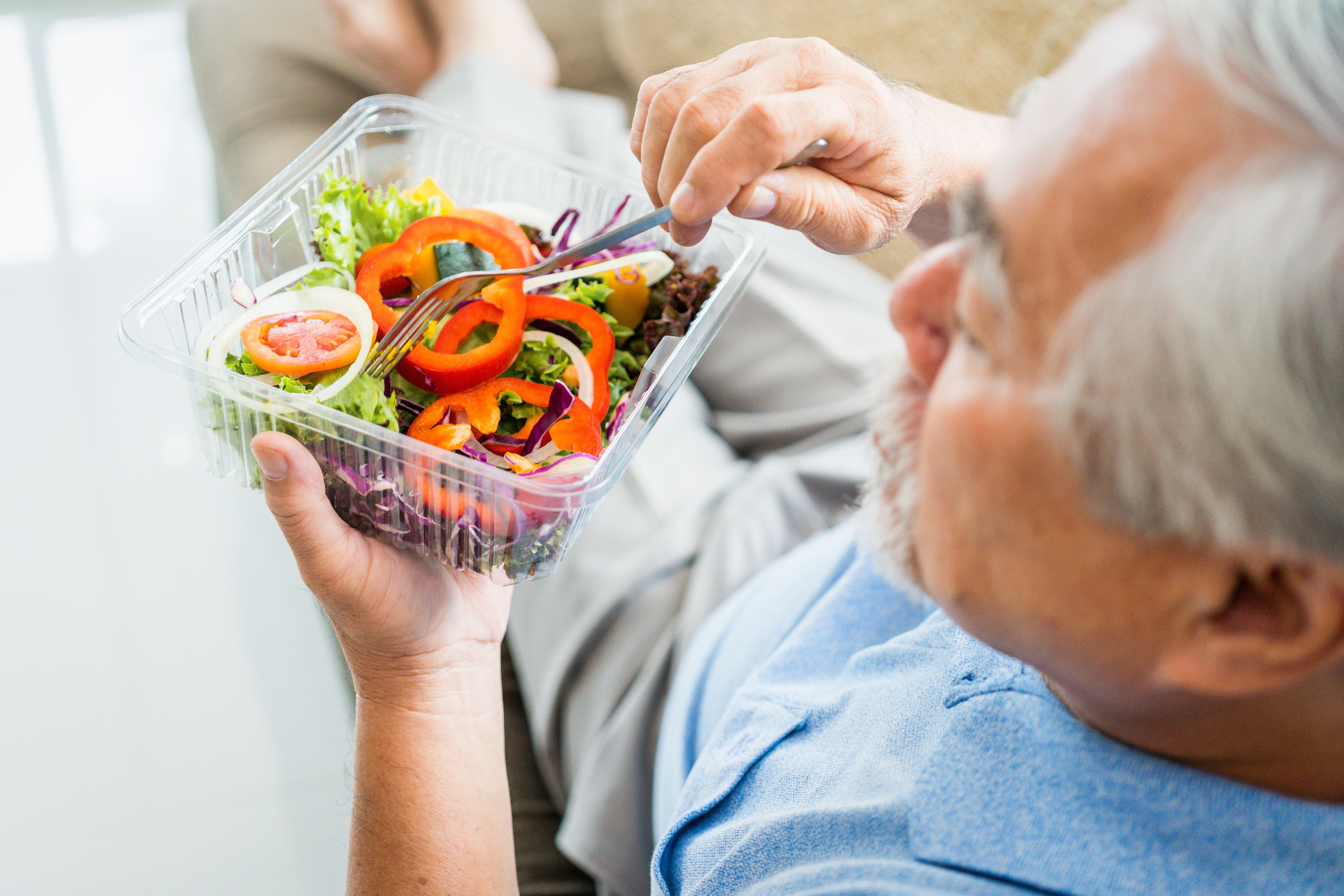
Increase Fiber Intake
Fiber adds bulk to your stool and softens it, making it easier to pass through the digestive tract without straining. As you get older, your digestive system may slow down, and the tissues supporting your veins can weaken, making you more susceptible to hemorrhoids2.
To increase your fiber intake, consider incorporating a variety of high-fiber foods into your daily meals. Examples include whole grains like oats, quinoa, and brown rice; fruits such as apples, pears, and berries; and vegetables like broccoli, carrots, and leafy greens3.
Legumes, such as beans, lentils, and chickpeas, are also excellent sources. Aim for at least 25-30 grams of fiber per day and increase your intake gradually to avoid bloating or gas3.
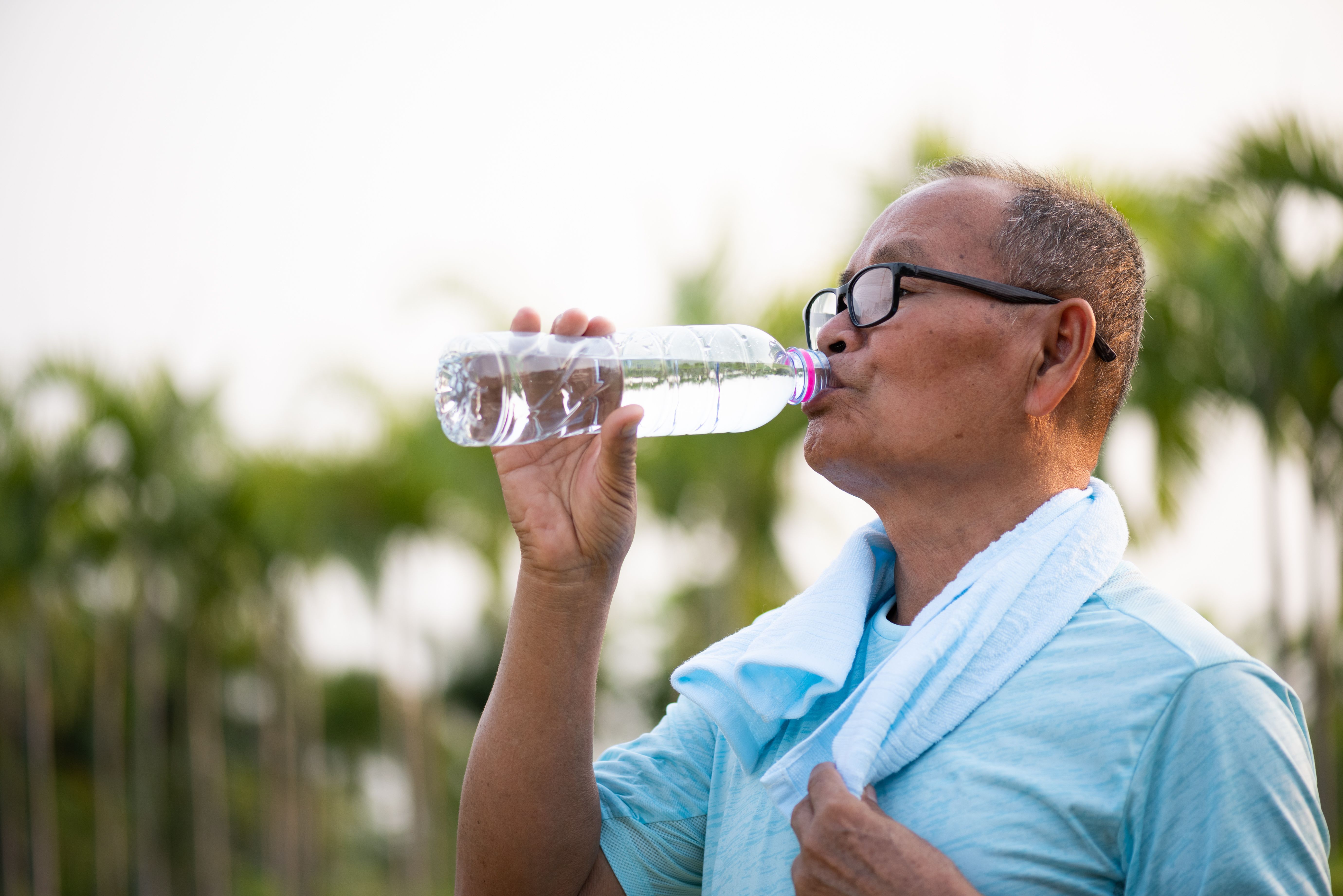
Stay Hydrated
As we age, our body’s ability to retain water naturally declines, and the sense of thirst may become less noticeable. Staying mindful of your water intake becomes even more important. For older adults, dehydration4 can lead to constipation, which increases the risk of hemorrhoids
Water helps keep your digestive system running smoothly by softening your stool and making it easier to pass. This reduces the need to strain during bowel movements, which is a major cause of hemorrhoids5.
Beyond drinking water regularly, there are other ways to increase hydration, such as sipping water throughout the day, eating water-rich fruits and vegetables like watermelon and cucumbers, and choosing soups or broths as part of your meals.
Furthermore, keep your tumbler within reach, make water breaks a part of your routine, and remember that even small sips add up to big health benefits6.
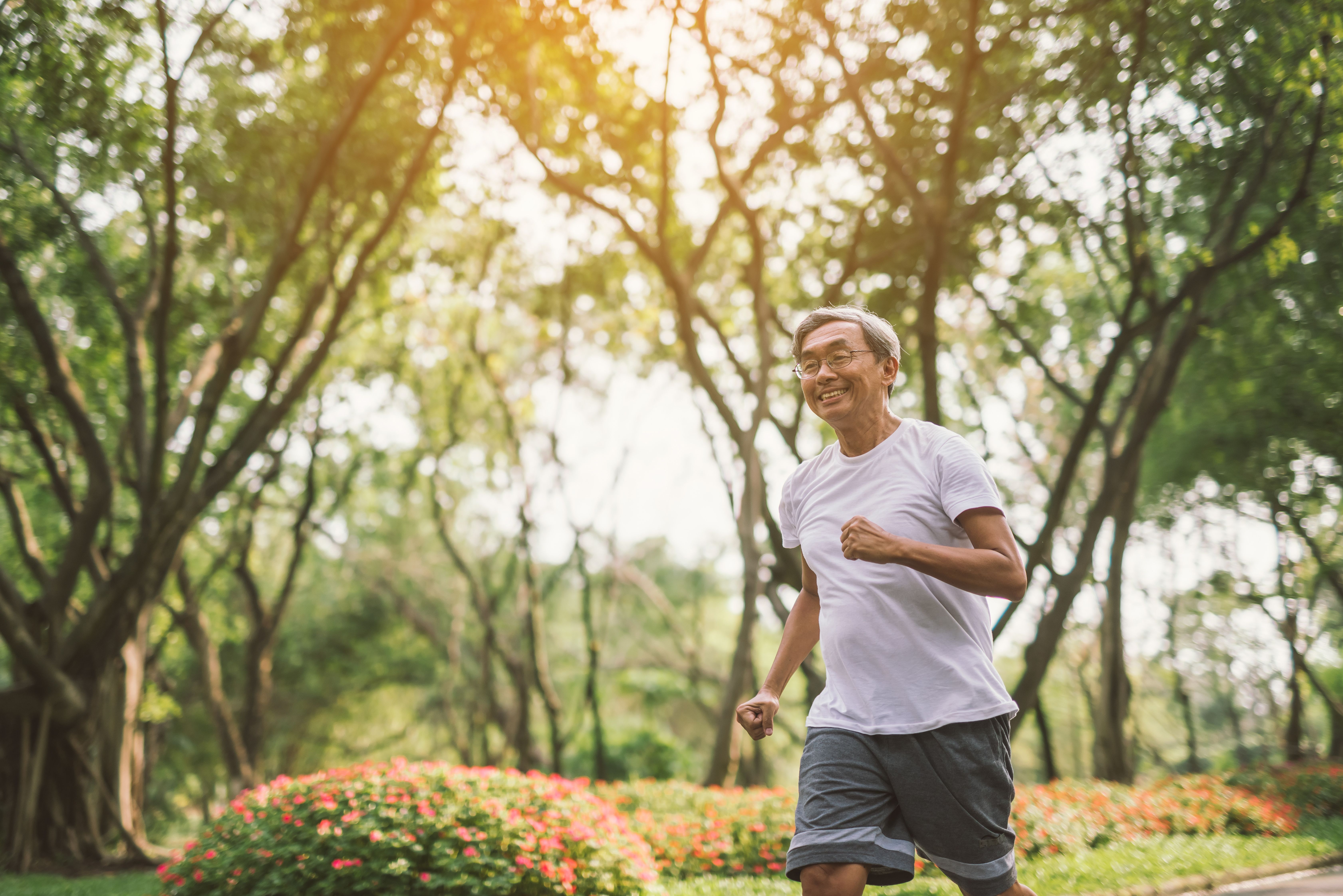
Exercise Regularly
Physical activity keeps your digestive system moving, reducing the likelihood of constipation, a major contributor to hemorrhoids. It also promotes healthy blood flow, which helps prevent the pooling of blood in the veins around the rectum and anus7.
You don't have to engage in intense workouts to see the benefits; even simple movements like walking can make a big difference.
For a manageable schedule, aim for 30 minutes of low-impact activities five times a week. You can start with a 20-minute morning walk after breakfast, do gentle stretches during your lunch break, or even try beginner yoga in the evening. If 30 minutes straight feels daunting, break it down into 10-minute sessions throughout the day.
Other great options include swimming and light strength training8. There's no need to drench yourself in sweat, just keep your body moving at a pace that's comfortable for you.
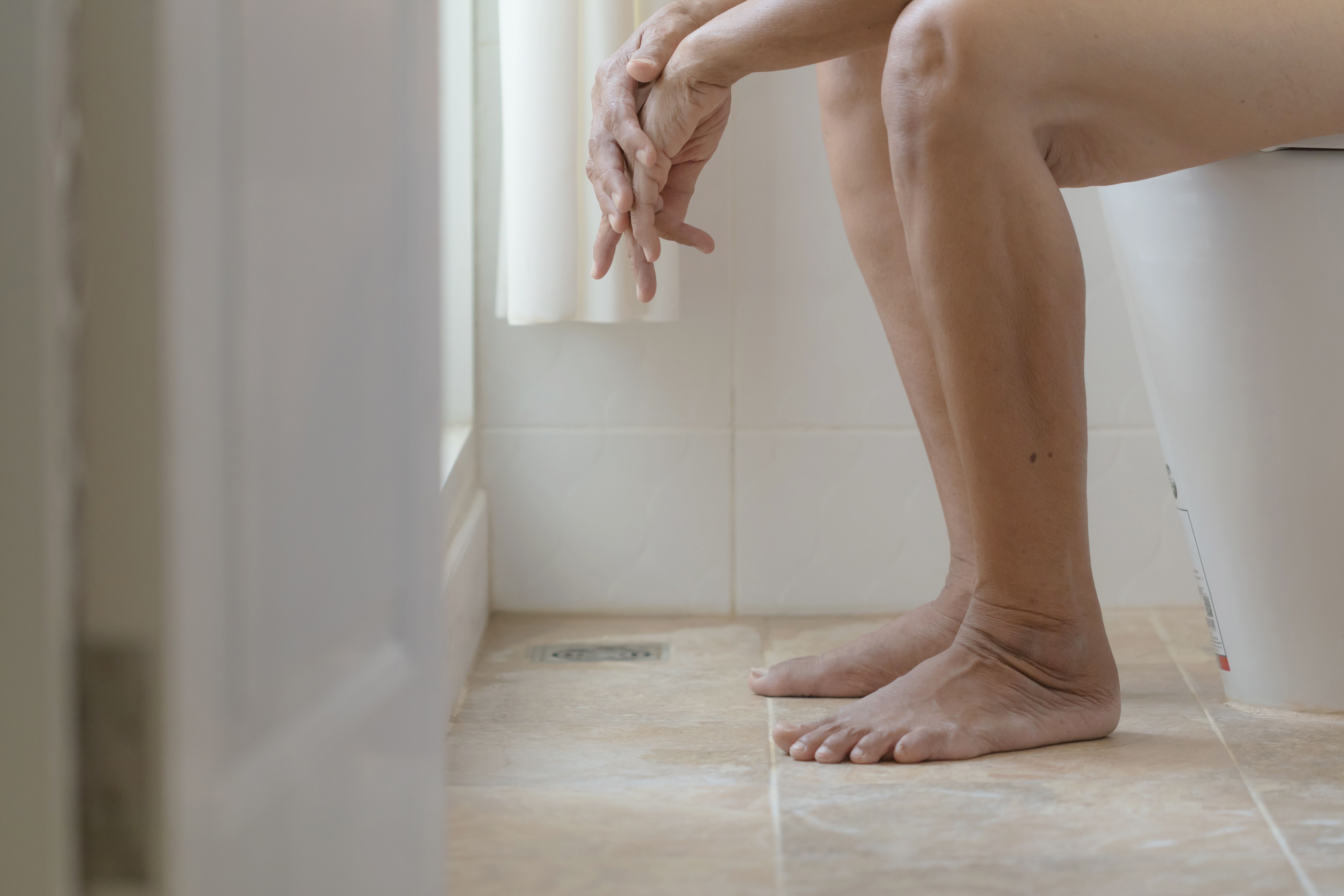
Avoid Prolonged Sitting on the Toilet
We all know how tempting it can be to bring our phones to the toilet—scrolling through social media, watching a video, or playing games. However, it can increase your chances of developing hemorrhoids9.
When you sit for prolonged periods, it puts extra pressure on the veins in your rectum, which can cause them to swell and eventually form hemorrhoids. This is especially true if you're straining to pass stool, as the constant pressure weakens the veins and increases the likelihood of discomfort. So, while it might feel like a short break, that time on the toilet could be contributing to unwanted strain on your body10.
To avoid prolonged sitting, one helpful tip is to limit your time on the toilet to just 5–10 minutes11.
If you’re having trouble passing the stool, try changing your sitting position. Elevate your feet by using a small stool or footrest while sitting on the toilet. This will mimic a squatting position, which can help align your rectum in a way that makes it easier to pass stool without straining.
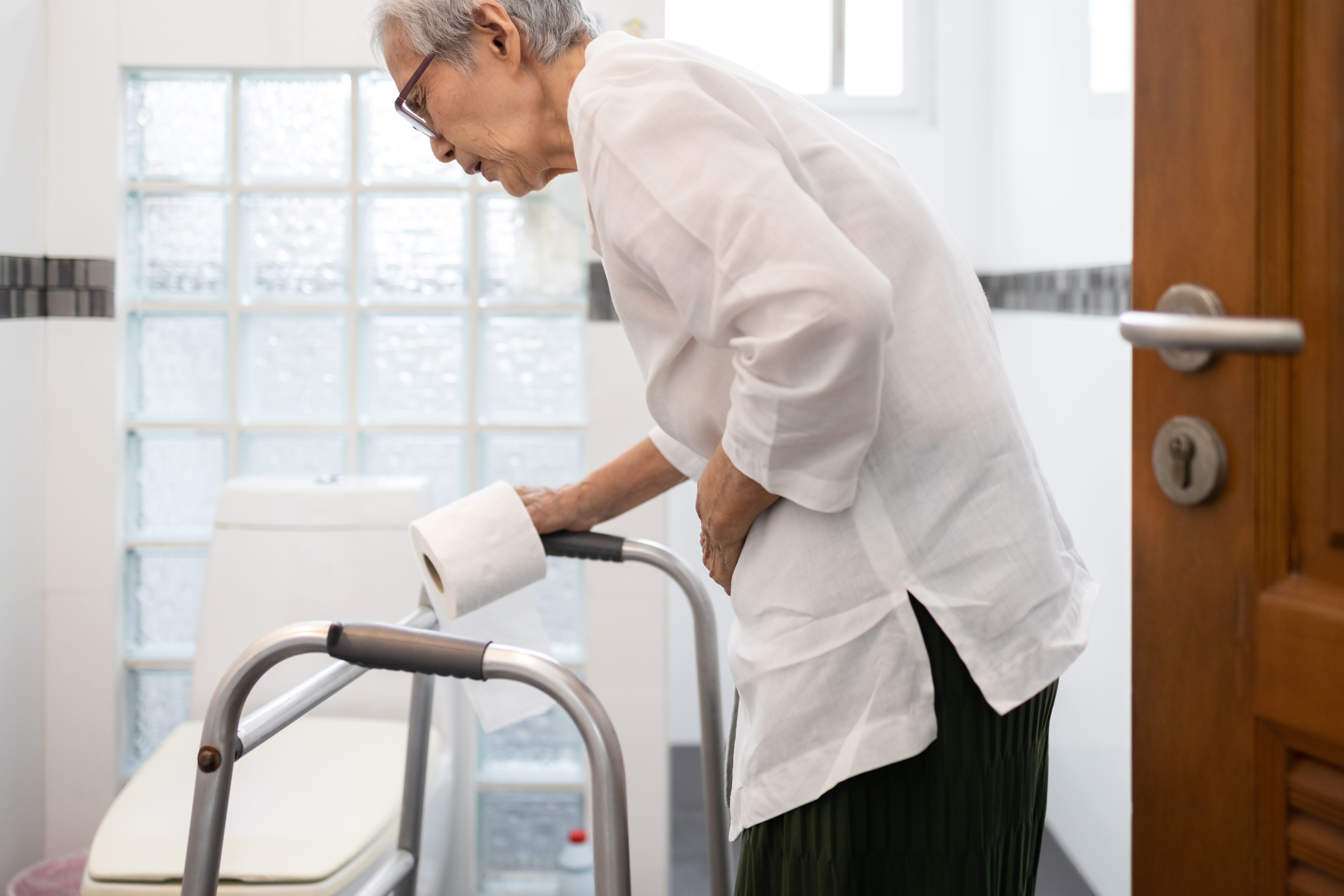
Respond Promptly to Bowel Urges
Sometimes, because of our busy schedules or hectic days, we tend to ignore our body's signals and postpone going to the bathroom when we feel the urge to have a bowel movement. However, delaying it can increase the chances of developing hemorrhoids12.
When you hold off on going, your stool can become harder and drier, making it more difficult and painful to pass later on. This extra straining puts pressure on the veins in your rectum and anus, which can lead to swelling, discomfort, and even hemorrhoid formation13.
A helpful tip is to listen to your body and prioritize responding to those bathroom urges as soon as you feel them. Try to set aside a few minutes to go to the toilet when you first feel the need, even if you’re busy. If you’re in a rush, take a moment to pause and ensure that you don’t ignore the urge for long periods.
Key Takeaway
Following these simple but effective tips to prevent hemorrhoids as you age can help keep you comfortable and healthy. Remember, taking care of these needs will make a big difference in keeping your body healthy and preventing hemorrhoids down the road.
If you’re looking for additional support, consider incorporating Diosmin + Hesperidin (Daflon® 1000) into your daily routine. This oral medication helps strengthen vein walls, reduce inflammation, and improve circulation, making it a valuable ally in your efforts to manage hemorrhoids. Always consult with your healthcare provider before starting any new treatment to ensure it’s right for you. Stay proactive and prioritize your health today.
REFERENCES
- https://medlineplus.gov/hemorrhoids.html
- https://www.eufic.org/en/whats-in-food/article/recommended-daily-intake-of-fibre-and-fibre-rich-foods-to-help-you-achieve-it
- https://www.ucsfhealth.org/education/increasing-fiber-intake
- https://www.mayoclinic.org/diseases-conditions/dehydration/symptoms-causes/syc-20354086
- https://troygastro.com/the-benefits-of-water-for-digestion/
- https://www.medicalnewstoday.com/articles/306638#water-sources
- https://orangecountyhemorrhoidclinic.com/best-and-worst-exercises-for-hemorrhoids/
- https://www.healthline.com/health/exercises-for-hemorrhoids#exercises-to-try
- https://www.healthline.com/health/phone-toilet-health-risks
- https://pubmed.ncbi.nlm.nih.gov/31996480/
- https://edition.cnn.com/2024/11/12/health/phones-on-toilet-wellness/index.html
- https://pmc.ncbi.nlm.nih.gov/articles/PMC7075634/
- https://www.medicalnewstoday.com/articles/can-hemorrhoids-cause-constipation
2026